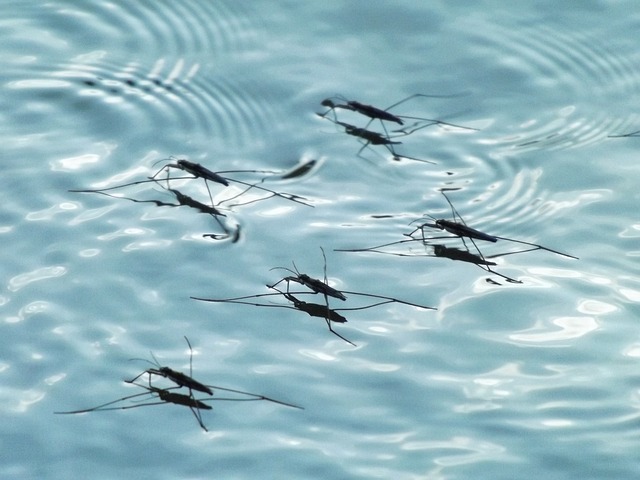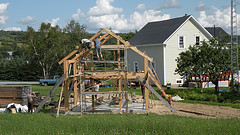Most Arkansans look forward to spending time outside each summer and fall. Whether it’s hanging in your hammock, sitting on the patio, or hitting the pool, time spent outside in the Natural State is exceptional. However, it’s expected that a few uninvited guests are sure to show up no matter where you are enjoying the great outdoors – mosquitoes.
Though summer is quickly winding down, it seems like the mosquitoes won’t leave for months. Ever wonder when the “official” mosquito season runs? Are you curious why mosquito bites itch so much? Clark Exterminating is here to answer those questions, and give you a few other fun facts about those pesky, needle-nosed bugs!
1. Mosquito season might be longer than you think.
Mosquitoes make their way out of hibernation when the weather gets warmer. Between May and June, the insects begin buzzing around outside your home. They stick around until the second frost of the season or until the temperature is consistently below 50 degrees. We all know that can take quite a while in Arkansas!
2. Only female mosquitoes feed on blood.
Though it might seem like every mosquito is out to get you, only the females need blood to survive. The blood they get from humans is necessary to help their eggs develop. Without regular blood feedings, a mosquito’s ability to reproduce weakens. Male mosquitoes, on the other hand, feed on flower nectar and sweet juices.
The tiny creatures use their “proboscis” to puncture the skin of their host. A mosquito’s nose acts as a needle to suck the blood it needs to lay eggs. The mosquito uses its proboscis to search through your skin to locate a capillary and then draws blood through it. The proboscis has two tubes, one for injecting saliva and one to draw blood.
When a female mosquito punctures your skin, she injects you with some of her saliva, which contains anticoagulants. The anticoagulants keep your blood from clotting, causing an allergic reaction in your body and resulting in those familiar round, red bumps. Your body sends histamines to the area, making the area swell and disturbing the nerves nearby, making your skin itch.5. In addition to blood, female mosquitoes need a body of water to lay eggs.
Mosquitoes can lay up to 300 eggs at a time in clusters, called rafts, on top of stagnant water. The eggs float on top of the water and can develop into adult mosquitoes in a minimum of 10 days. Removing stagnant water around your house is a way to prevent a mosquito habitat from developing.
Benton: (501) 776-1388
Conway: (501) 329-0396
Hot Springs: (501) 623-2335




